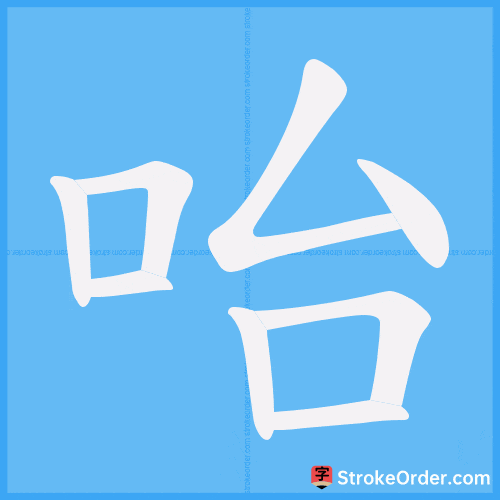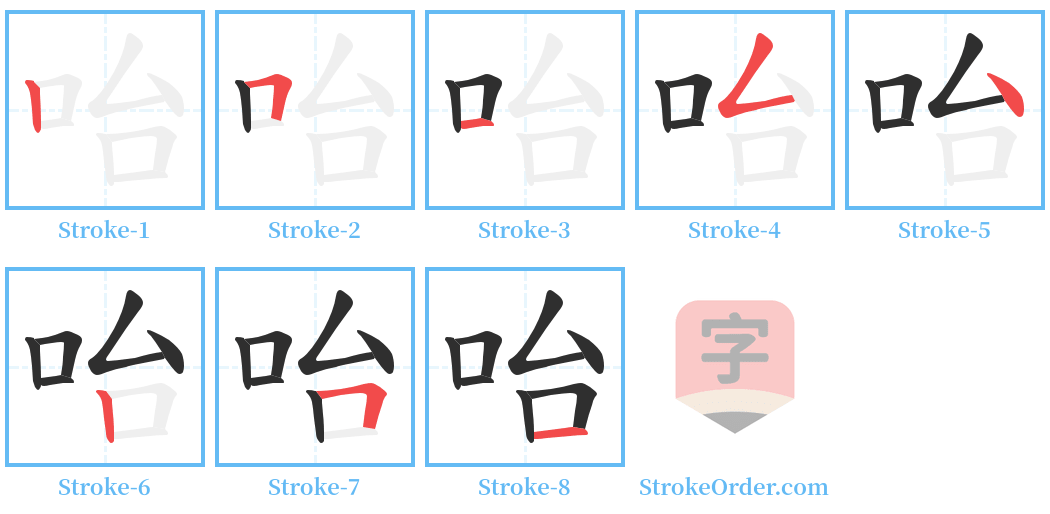咍 Stroke Order
Animated Stroke Order of 咍

Stroke Order Diagrams for 咍

Information of 咍
Pinyin
hāi
Radical
口
Strokes
8 strokes
Usage
★★
Definition
咍 [hāi]
1. 笑: To laugh.
Example: 拊掌欢咍 (to clap hands and laugh joyfully).
2. 古同“咳”,叹词: An ancient expression meaning "cough," used as an exclamation.
Example: 咍!我真不该这样!(Darn! I really shouldn't have done that!)
3. 助词: A particle used in the harmonies of Chinese Yuan and Ming dynasty operas, serving to enhance the rhythm of the music.
4. 欢笑: Smiling.
Example: 欢咍温噱 (joyful laughter).
5. 表示伤感、后悔或惊异,常写成“咳”: Used to express sadness, regret, or amazement, often written as "咳."
Example: 咍,我怎么这么糊涂! (Damn it, how could I be so foolish!)
6. 该死,糟了: Damn it.
Example: 咍,真有这种怪事儿 (What? There really is such a strange thing).
7. 怎么: What.
Example: 咍,怎么不回过脸儿来 (Hallo, why didn't you turn around?).
8. 表示招呼: Used as a greeting.
Example: 咍,怎么不回过脸儿来 (Hallo, why didn't you turn around?).